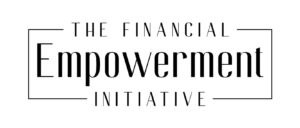
A credit card provides a short term loan usually at high interest. The credit card allows you to purchase and borrow money from the credit card issuer to pay for it. The credit card issuer is the financial institution that offers credit cards. You have to pay back the money you have borrowed. The credit card issuer send you a bill once a month, listing all your purchases and showing how much you owe. If you pay your balance in full by the due date, you are not charged any interest (unless you have taken cash advances). If you do not pay the balance in full by the due date, you will incur interest charges, which may be high.
Credit cards are an expensive way to borrow money. You must always spend your credit card only in dire situations as the interest rates are normally high. You must also always spend when you know you can pay back in full.
There are some advantages to having a credit card. Here are some benefits:
- lets you borrow money instantly to make purchases
- allows you to carry less cash
- lets you get cash advances
- lists your purchases in one monthly statement
- helps you establish a credit history and earn a good credit score
- provides a convenient payment method for purchases made on the internet and over the telephone
- has limited liability in case of fraudulent use.
- may offer warranty warranty and purchases made on the internet and over the telephone
- has limited liability in case of fraudulent use
The negatives of owning a credit card can sometimes outweigh the benefits. For example:
- Credit cards can damage your credit score if your payments are late or you don’t repay.
- Credit cards allows you to build up more debt than you can handle
- Credit cards costs more than some other forms of credit such as a line of credit or a personal loan.
Manage your credit cards.
Here are some ways to manage your credit cards effectively:
- Choose the card that has the features you want at the lowest cost. For help in choosing a credit card that meets your needs, use the Financial Consumer Agency of Canada’s Credit Card Selector Tool
- Limit the number of credit cards you hold – if you don’t have them, you can’t use them.
- Keep your credit limit low to help you avoid overspending.
- Read your monthly statement to understand the rules for your card: when interest is charged, for which transactions, and when you have to make payments.
- Avoid taking credit card cash advances, except for emergencies.
- Try to pay the monthly balance in full, and not just the minimum amount.
Conclusion
Manage your credit card like you would maintain a house: responsibly and diligently. That way, your costs are kept low and your finances tidy.
The information on this page has come from Canada.ca
